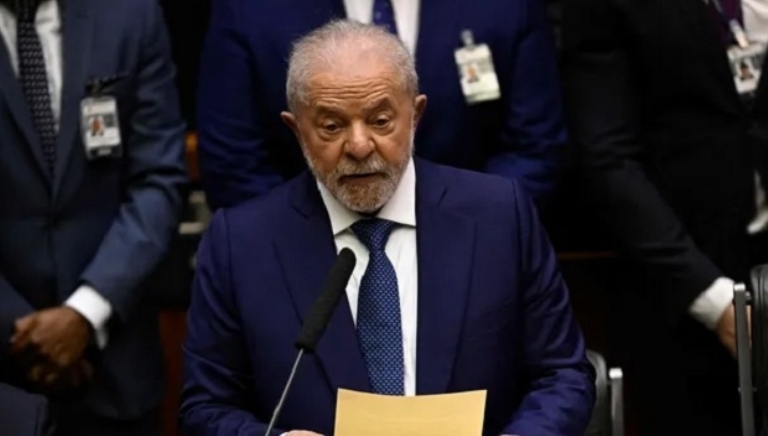

It was on April 30, 1946, at Copacabana Palace in Rio de Janeiro, that the last roulette game took place in a casino legalized in Brazilian territory. That day, under the influence of Carmela Dutra (The Dona Santinha), a devout Catholic, the Minister of Justice, Carlos Luz, and Archbishop Jayme Câmara, President Eurico Gaspar Dutra signed Decree-Law 9.215 prohibiting the exploitation of gambling on the grounds that the practice led to the degradation of human beings.
The measure closed the doors of 71 casinos, including Urca, in the same Rio, the scene of a long list of artists that included Ary Barroso, Carmen Miranda, Dick Farney and the French-American Josephine Baker. Almost eighty years later, still under conservative resistance, Brazil is moving to re-legalize the gambling industry —the topic entered agenda entered the agenda of Lula's transition team, a sign that luck can turn to the betting sector. "It's something that the government will have to consider with some urgency," said Luiz Barretto, a former tourism minister and coordinator of a working group on the topic.
The way to spin roulette again has not been easy, because the legalization of gambling is still a major political taboo in the country. The last slip-up was led by President Jair Bolsonaro, who left office without signing the regulation of online sports betting. The business has been sleeping in government drawers for four years. They were legalized in 2018, at the end of the government Michel Temer, which gave a deadline of until 2022 for its regulation - the time ran out on December 13. The decree already had the approval of the Civil House and the Ministry of Economy, but the president chose not to approve it. First, before the election, for fear of losing evangelical votes. Then, not to bear the burden of liberation and leave the bonus to Lula.
The non-signature by Bolsonaro may have pleased the conservative public, but frustrated many people. Since legalization, the annual turnover of the sports betting market has jumped from R$ 2 billion to R$ 15 billion, and houses of the sector have dominated the main sponsorships of the sport in the country. The companies expected the regulation to establish its office in Brazil with legal certainty, since the legal complement would stipulate the price of the license to be paid to the Union to operate in the national territory and establish regulatory bodies of the activity, requirements for monitoring bets against manipulation of results, policies to combat money laundering and principles of responsible gambling.
Over these four years, the sites operated with CNPJs from outside, mostly offshore. Transactions take place abroad, the activity is not supervised by Brazilian agencies and companies do not pay taxes. In addition, legal problems cannot be solved in Brazilian courts. In the current scenario, they all lose: the government that does not collect, the players who cannot complain when they are victims of scams, and the serious groups involved in the market.
The possibility of releases other than online sports betting is also shelved, also for political reasons. This list includes jogo do bicho, bingo, casinos and online betting (not just sports). The bill that deals with the issue, 442/91 (that's right, it is from 1991), was passed in the House in February and expects to be guided in the Senate, which was postponed because the president, Rodrigo Pacheco, needs the votes of conservatives to be re-elected to the presidency of the House in February.
Disagreements between senators on items such as the way sector's money is apportioned. "The issue is controversial and has divergent points that require negotiations, but I believe that most senators are in favor of legalization. And I think the new government will not owe the creation of new revenues," says Senator Angelo Coronel (PSD-BA), quoted to be the rapporteur.

And, in fact, the signs coming from the future government are in that direction. Proof of this is that gambling regulation was included in the report of the transition group, which had as one of the members Deputy Felipe Carreras (PSB-PE), who reported the Bill in the House. Another signal was made by former minister Edinho Silva, near Lula, who defended the taxing of gaming and the allocation of money for education. "How are we talking about children out of school and perhaps today the biggest avalanche of bets that Brazil has ever experienced being made outside the country without any taxation?" he asked in an interview with a TV show.
Behind the scenes of the transition, there is consensus that most tourism and economy teams play in favor of releasing the activity because of the various financial advantages —the legalization even provides for the transfer of resources to Embratur. The greatest resistance, besides the religious, is due to people connected to public safety, who still have a foot behind in relation to the possibility that gambling is linked to organized crime.
The discussion about the legalization of the sector is even somewhat surreal when the practice becomes increasingly visible. Even if they are not taxed or supervised, sports bookmakers have their trademarks stamped on the shirts of the biggest football clubs, banners in major competitions and stadiums and advertising in the largest broadcasters.
Making the market legal and regulated, provided that with the necessary reservations to combat addiction and prevent criminal acts, is a good chance to not only increase government revenue, but also make the activity safer, both for the bettor and for the entrepreneur. The future government has the cards in its hands and seems willing to make the right move.
Source: VEJA